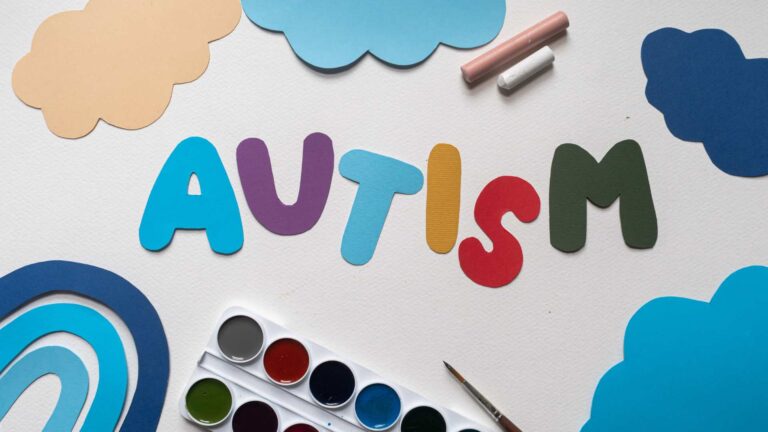How can a change in routine affect a person with autism?
Have you noticed that some people need to have an agenda or an app or write down everything to keep track of their daily tasks and responsibilities? These tools can be helpful, among other things, for managing time effectively. On the other hand, routines in autism provide a sense of stability and predictability in a world that can often feel overwhelming for individuals with autism spectrum disorder (ASD).
Perhaps you wonder: “How can a change in routine affect a person with autism?” Imagine a child with autism who follows a set routine every morning before going to school. This routine includes waking up at the same time, having breakfast, getting dressed, and waiting for the school bus. One day, due to unforeseen circumstances, the bus arrives late. This change in routine can cause anxiety, confusion, frustration, and even challenging behaviors due to the feeling of lack of control and predictability.
The characteristics of autism spectrum disorder (ASD) are so broad, and individuals may not experience them in the same way. That’s why today, in this blog by ABA Centers of Tennessee, we want to explain the importance of routines in autism and how they can be highly beneficial.
Importance of Routines in Autism
Depending on the severity level, individuals with ASD may experience sensory sensitivities, communication difficulties, challenging behaviors, and struggles with changes. That is why having a sense of order or routine is crucial in their daily lives. Here are some reasons why they are essential:
1. Predictability and Stability – Knowing what to expect and when to expect it can reduce anxiety and help them feel more comfortable and secure in their environment.
2. Reduced Anxiety and Stress – For many individuals with autism, unexpected changes or disruptions to their routines can cause significant anxiety and stress. Following familiar routines can help minimize these negative feelings and promote a sense of calmness.
3. Enhanced Learning and Skill Development – Routines can serve as a framework for learning and skill development. By breaking tasks and activities into predictable steps within a routine, individuals with autism can better understand expectations and build upon their skills over time.
4. Improved Independence – Consistent habits can empower individuals with ASD to become more independent in their daily lives. When they know what comes next and how to navigate familiar routines, they may require less support and assistance from others.
5. Communication and Social Interaction – Routines can facilitate communication and social interaction. For example, consistent routines can provide opportunities for practicing social skills, such as turn-taking and following instructions, within a structured context.
Family routines and rituals play a significant role in the lives of young children, providing structure, stability, and an emotional climate that supports their development. Moreover, according to the American Psychological Association, these routines and rituals can offer stability during times of stress and transition, acting as powerful organizers of family life.
Strategies for Establishing and Supporting Routines
Routines and rituals are fundamental for everyone, as they provide structure and stability in our lives. In addition to providing a sense of order, they also contribute to emotional and mental well-being. To promote effective routines in the home, parents and caregivers can implement a variety of strategies:
Create visual schedules – Visual schedules or timetables can help your kid understand and anticipate their daily routines. You can use visual supports, such as pictures, symbols, or written words, to represent different activities and tasks.
Use timers and countdowns – Timers and countdowns can help to manage transitions and understand when activities will begin or end.
Provide warnings and reminders – Giving advanced warnings and reminders before transitioning to a new activity will prepare them mentally and emotionally.
Offer choices – Providing choices within routines empowers individuals and promotes independence. For example, allow your child to choose between two preferred activities or options within a structured routine.
ABA Therapy Helps Parents Address Routines Challenges
Applied Behavior Analysis (ABA) therapy is a widely recognized and evidence-based approach for supporting individuals with autism in developing adaptive behaviors, including managing routines. ABA therapists use principles of behavior analysis to assess, identify, and address routine-related challenges through individualized interventions and treatment plans. Some ABA techniques and strategies for managing routine difficulties may include:
- Break down routines into smaller, manageable steps to facilitate learning and skill acquisition
- Use positive reinforcement, such as praise, rewards, or preferred activities, to encourage adherence to routines and flexibility
- Teach individual clients alternative ways to communicate their needs and preferences within routines, reducing frustration and challenging behaviors
- Adjust the environment to reduce sensory triggers or distractions that may disrupt routines and implement visual supports to enhance understanding and predictability
ABA Centers of Tennessee and Autism Care
Routines in autism can make day-to-day life at home more manageable by creating structure, predictability, and support for your child’s daily functioning. Understanding the importance of routines and implementing effective strategies, including those offered by ABA therapy, can help individuals with autism thrive and reach their full potential.
There is a lot of information online, but if you would like to benefit from comprehensive therapy to manage challenging behaviors, instill positive behaviors, and foster your child’s skills on the spectrum, you can contact ABA Centers of Tennessee at (844) 423-9483 or leave your contact information here so our autism Care specialists in Brentwood, Hendersonville, Nashville, Madison and more areas of Tennessee can contact you back.
Remember, finding the right therapy center can make a difference in your child’s life.




